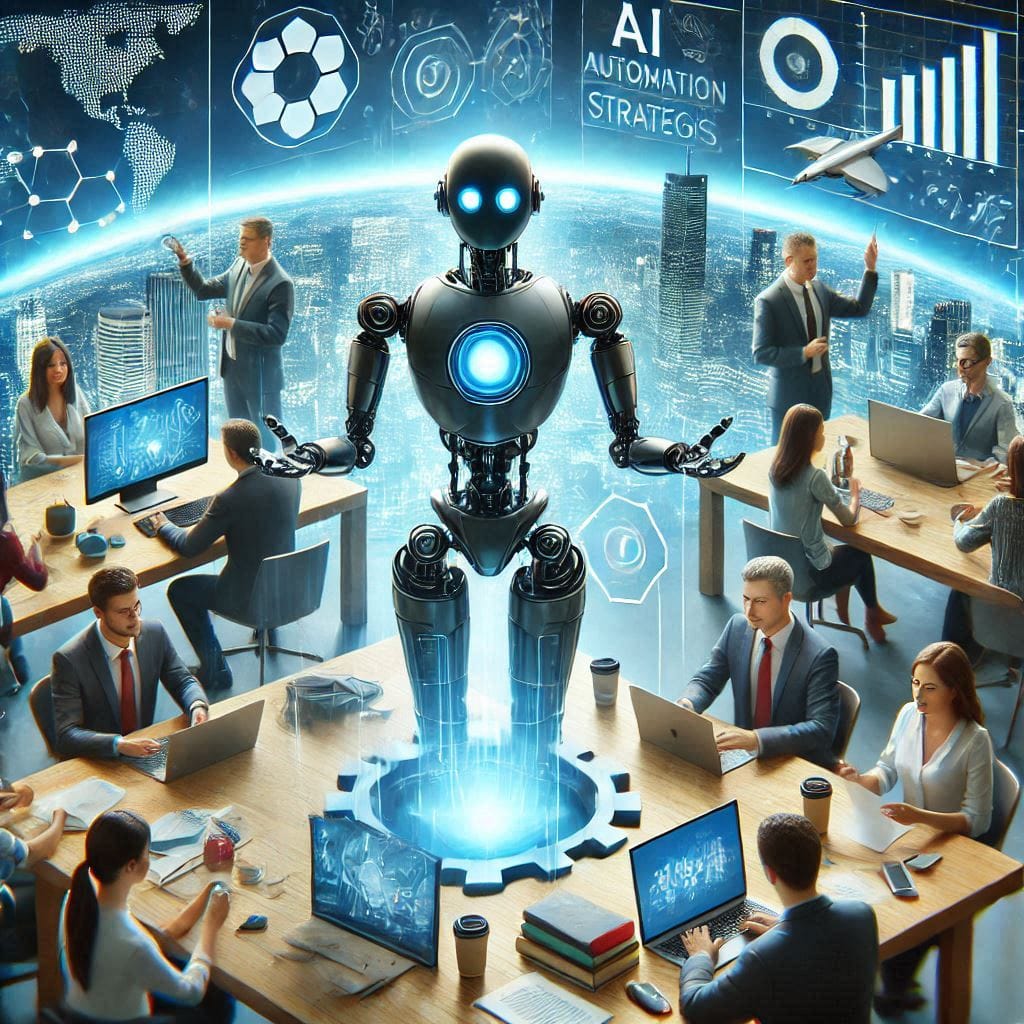
5 AI Automation Strategies Poised to Revolutionize Business in 2025
Artificial intelligence (AI) is no longer a futuristic concept; it’s a rapidly evolving reality reshaping industries across the board. As we approach 2025, businesses are increasingly recognizing the transformative power of AI automation. To stay ahead of the curve, understanding and implementing cutting-edge AI strategies is crucial. Based on emerging trends and current successes, here are five key AI automation strategies set to dominate the business landscape in 2025:

1. Niche AI Automation Agencies: Specialization is the Key to Success
The days of the generalized AI agency are waning. In 2025, the most successful AI automation agencies will be those that specialize in specific niches, offering deep expertise in a particular area. This specialization allows agencies to provide more targeted solutions and deliver greater value to their clients. Some high-potential niches include:
- Make.com and Airtable Automation Specialists: These agencies will focus on leveraging these powerful no-code platforms to create bespoke AI automation workflows for their clients.
- Voice AI Agents: This rapidly growing niche involves building sophisticated AI voice solutions, such as AI cold calling systems, AI voice fundraisers, and AI voice appointment setters, revolutionizing outbound communication.
- Text-based AI Agents: Agencies specializing in text-based AI will build chatbots for customer service, sales, and other business functions, enhancing communication and efficiency.
- Chatbot Specialists: These specialists will focus on creating intelligent AI chatbots for websites, providing instant customer support and improving user experience.
- AI Solutions for Education and Coaching: Tailoring AI tools and platforms to enhance learning experiences, personalize education, and automate administrative tasks for educational institutions and coaching businesses.
2. AI-Powered Content Repurposing: Maximizing Content ROI
Content is king, but creating it can be time-consuming. In 2025, AI-powered content repurposing systems will become increasingly vital. These systems automate the process of transforming long-form content, such as YouTube videos or podcasts, into a variety of formats optimized for different platforms (e.g., blog posts, social media snippets, email newsletters). This allows businesses to maximize the reach and impact of their content with minimal effort, dramatically increasing ROI.
3. AI Marketing Offers: Selling Smarter, Not Harder
AI is transforming the marketing landscape, and several AI-powered marketing offers are proving to be highly effective. These include:
- AI-Powered Visual Content Creation: Tools that generate compelling visual marketing assets, saving time and resources for marketing teams.
- AI-Enhanced Lead Qualification and Appointment Setting: Using AI to analyze leads, prioritize high-potential prospects, and automate the appointment setting process, resulting in a more efficient sales pipeline.
4. AI-Enhanced Lead Generation and Outreach: Personalized Engagement at Scale
Generating high-quality leads is a constant challenge for businesses. In 2025, AI will play an even more significant role in lead generation and outreach:
- AI-Enhanced Lead Magnets: These go beyond simple name and email capture, collecting more prospect information to generate personalized reports and insights, adding significant value and increasing engagement.
- AI Voice Agents for Cold Calling: Utilizing AI voice platforms to conduct automated yet personalized cold calls, reaching a larger audience with greater efficiency.
- Personalized Outreach Powered by AI: Leveraging AI to tailor outreach messages to individual prospects based on their specific needs and interests, cutting through the noise and increasing response rates.
5. AI-Powered Automation of Business Processes: Streamlining Operations for Maximum Efficiency
The core of AI’s value lies in its ability to automate tasks and streamline processes. In 2025, businesses will increasingly implement AI-powered systems to handle repetitive tasks such as:
- Data Entry and Processing: Automating data entry, cleaning, and processing, freeing up human employees for more strategic work.
- Email Classification and Management: Utilizing AI to categorize, prioritize, and even respond to emails, improving productivity and responsiveness.
- Content Scheduling and Management: Automating the scheduling and distribution of content across various platforms.
- AI-Enhanced Recruitment: Streamlining the hiring process, from resume screening to initial candidate engagement.
Conclusion:
The AI revolution is upon us, and 2025 promises to be a pivotal year for AI automation. By embracing these five key strategies – specializing in niche AI services, leveraging AI for content repurposing and marketing, and automating core business processes – businesses can unlock unprecedented levels of efficiency, productivity, and growth. The future belongs to those who are willing to adapt and harness the power of AI, transforming their operations and securing a competitive edge in the rapidly evolving digital landscape.

